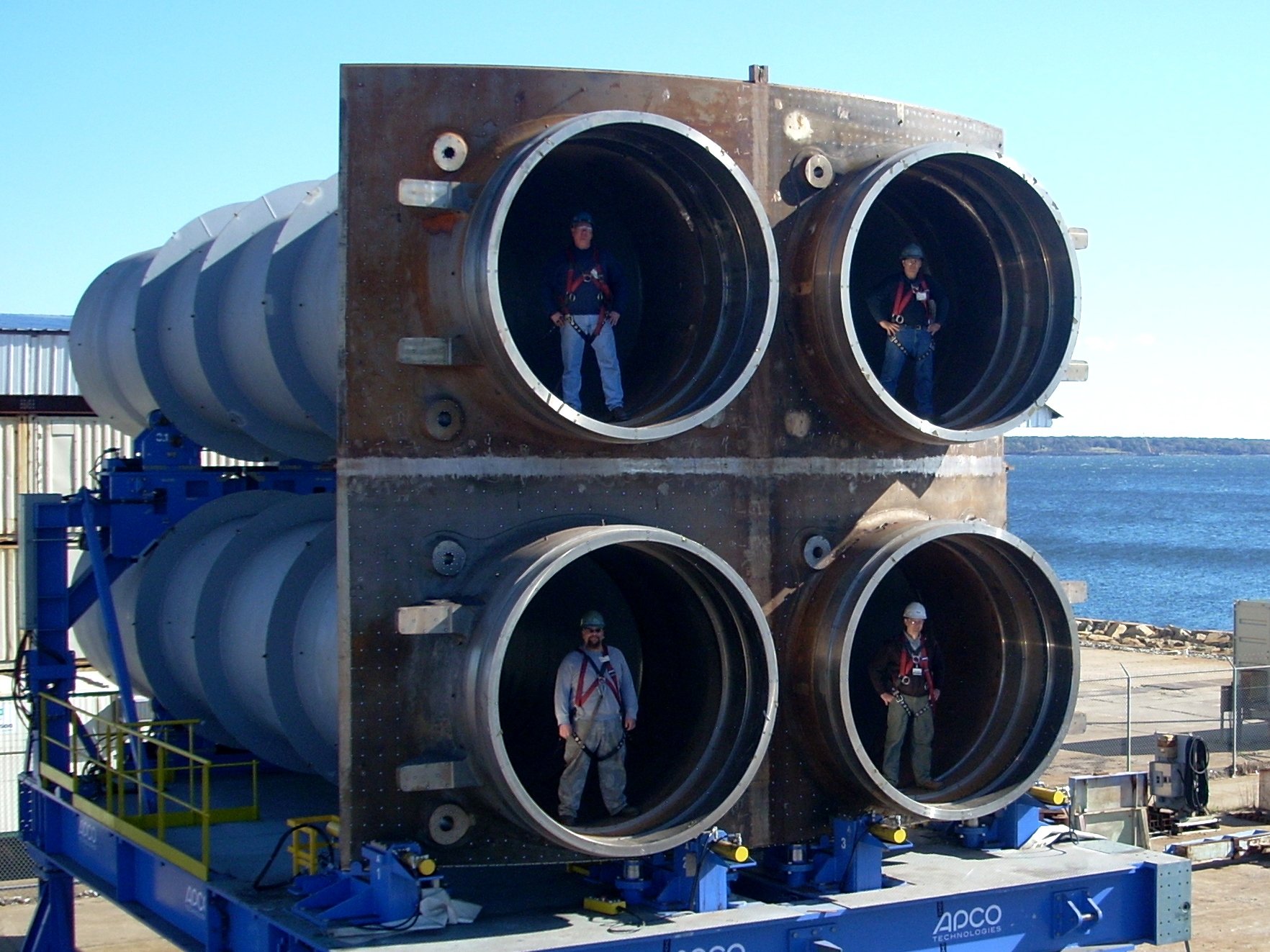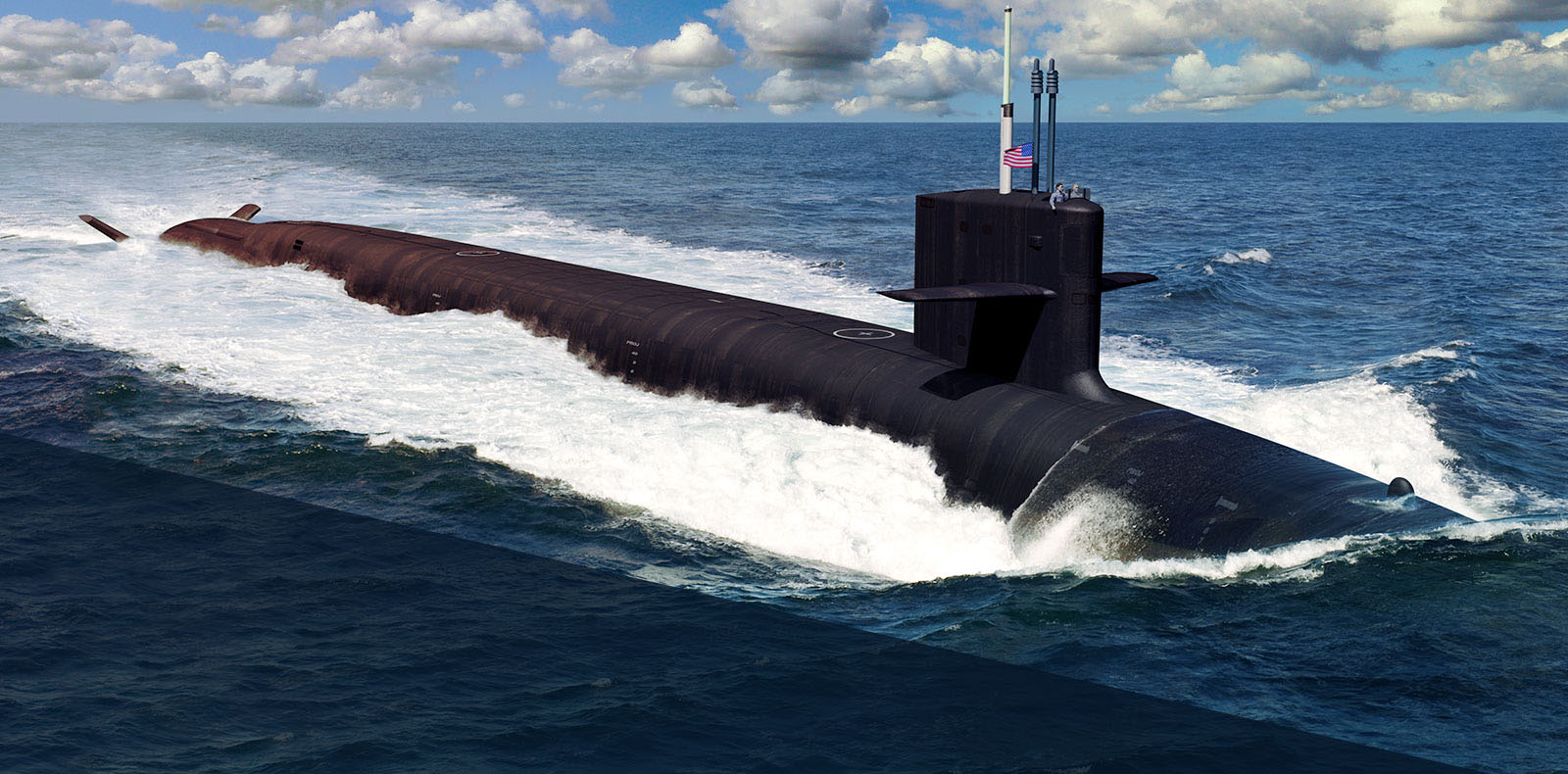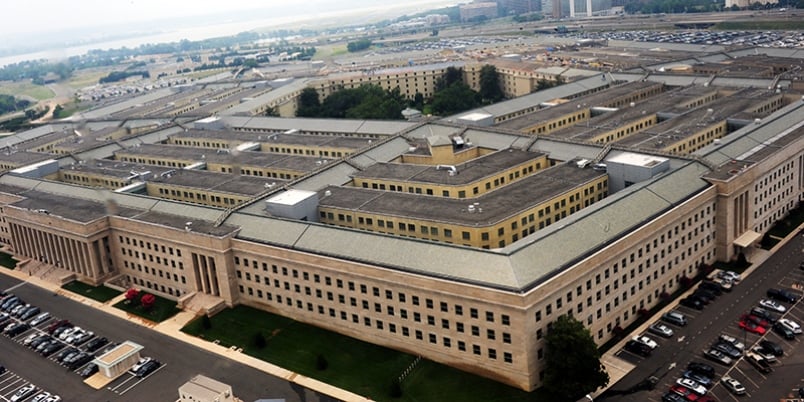
A problem with Columbia-class submarine missile tube welds is more serious than initially thought, causing the contractor responsible to set aside $27 million to cover repair work that is expected to take nearly a year.
BWX Technologies, the sub-contractor building missile tubes for Columbia-class ballistic missile submarine (SSBN) prime contractor General Dynamics Electric Boat, discovered the welding problems over the summer. Electric Boat had not yet installed the tubes in submarine hulls, Rex Geveden, chief executive of BWX Technologies, said while speaking with Wall Street analysts during a Wednesday morning conference call. The fixes might not be finished until the summer of 2019.
“Inspection efforts and rework effort was more substantial than previously believed,” Geveden said. “Our plans call for completing all the repairs by the middle of next year. In terms of any delays, the U.S. boats will not be affected by the missile tube delay.”
The missile tubes will be used on both U.S. and U.K. submarines.
The company finished the quarter with revenues of $426 million compared to revenues of $419 million a year ago. Profits for the quarter were $77.9 million, compared to $46.6 million reported a year ago, according to a BWX earnings statement.
BWX has made nuclear submarine components since the Navy first started using nuclear propulsion. Most of BWX’s work for the Navy involves building and fueling reactors used on both the Columbia-class and Virginia-class attack subs, as well as on the new Ford-class aircraft carrier. Missile tube production represents about 3 percent of BWX’s Navy business, Geveden said.

The 12-hull Columbia-class program is estimated to cost $122.3 billion. The Navy has awarded contracts to Electric Boat to purchase long-lead materials, including the missile tubes from BWX and two other sub-contractors, in anticipation of starting production. Electric Boat expects a contract to build the first Columbia-class submarine in late 2019, General Dynamics officials said during a recent conference call discussing third quarter financial results with Wall Street analysts.
After identifying the missile tube welding problems, BWX halted production while inspectors from the company, Electric Boat and the Navy determined the cause and developed a solution. The process involved the use of ultrasonic equipment to check very long, complex welds, Geveden explained. The welds are 100 inches long, and Geveden said the original technique for inspecting the welds did not catch all the quality issues along that lengthy weld that the Navy’s ultrasonic checks did.
“Our weld techniques were not adequate for those large metric welds. So we’re changing our technique,” Geveden said.
BWX revamped its weld inspection process and retrained its welders. The welding issue was limited strictly to BWX’s missile tube production, and Geveden stressed there was no “spillover” affecting manufacturing in the company’s much larger reactors business.
During the next round of submarine contract awards, Geveden is confident BWX will be considered. The Navy is buying 12 Columbia-class submarines but is now also expected to purchase five post-Columbia-class subs, according to a Congressional Budget Office analysis of the Navy’s long-term shipbuilding plan. The Columbia-class design is likely to be the base design of these five subs, which would be akin to a guided-missile submarines (SSGN), according to the CBO.
“We are dead certain this problem is restricted to this product line, and restricted to this particular weld on this particular product line,” Geveden said of the missile tube welds.





